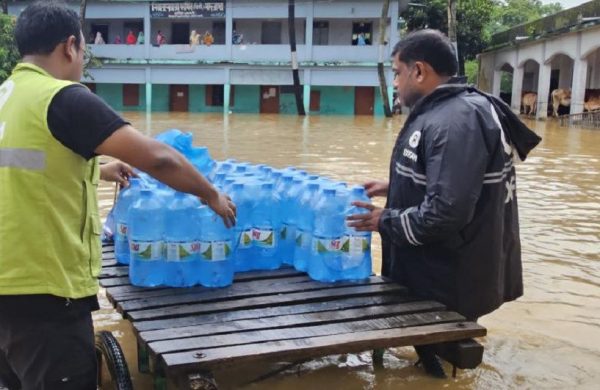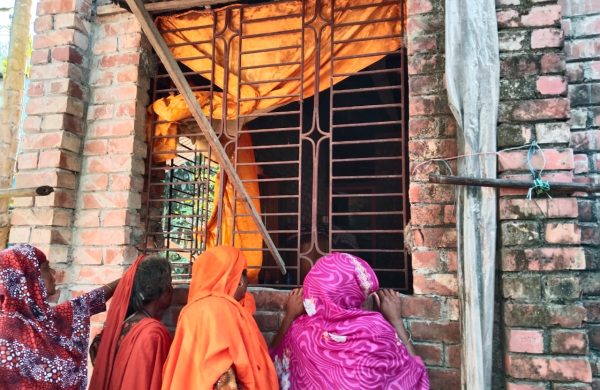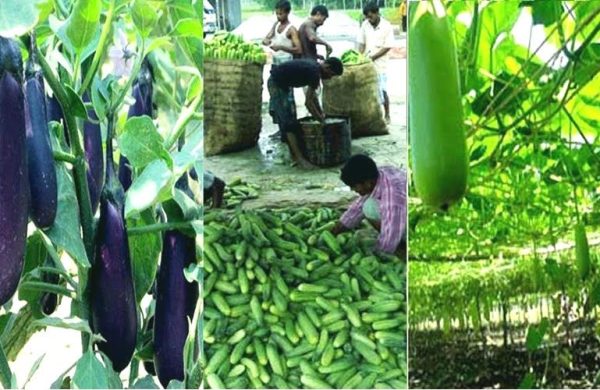Over 90% of people in Feni, Noakhali affected by floods: Oxfam
- Update Time : Tuesday, September 3, 2024

TDS Desk:
A rapid assessment by Oxfam in Bangladesh has uncovered the staggering impact of the recent floods in Feni and Noakhali, the hardest-hit districts.
The assessment shows that over 90% of the population has been severely affected, with nearly all shelters submerged, 48% destroyed, and 100% of sanitation and water facilities rendered unusable.
As floodwaters slowly recede, the full scale of the destruction is becoming increasingly apparent. With the loss of livelihoods, food insecurity is a growing concern, with 72% of affected families only able to eat twice a day, often insufficiently. The sanitation crisis is particularly dire, with open defecation becoming commonplace due to destroyed facilities, heightening the risk of waterborne diseases.
Hosne Ara Begum, a 38-year-old Feni district resident, recounted her harrowing experience: “We spent days on the roof, with no food or clean water. The toilets were underwater, and we had no privacy. We had to use a saree (cloth) to cover and defecate on the roof. We’ve been sick, but there’s no other option. This flood has taken everything from us.”
As relentless monsoon rains and rising river levels continue to batter Bangladesh, the country faces one of its most severe flooding crises in recent history. The catastrophic floods began in August 2024 and have submerged vast areas across 11 districts, including Feni, Cumilla, Chittagong, and Sylhet, displacing over 500,000 people and affecting more than 5.8 million. With infrastructure, homes, and agricultural lands extensively damaged, communities need immediate and sustained support.
Oxfam’s Country Director in Bangladesh, Ashish Damle, said, “If organizations like ours don’t stand by them, our existence is meaningless. We must unite all resources to support them—not just now, but for the long road ahead.” “We are calling on the international community to stand with the people most affected by these floods. Rebuilding water and sanitation infrastructure will be crucial for their long-term recovery,” he added.
The affected communities immediately need safe drinking water, cash support, food packages, and hygiene kits. Mid-term needs include repairing homes, restoring water and sanitation infrastructure, and providing agricultural inputs to restart food production. In the long term, sustainable solutions such as building resilient WASH (Water, Sanitation, and Hygiene) facilities, constructing community shelters, and promoting income-generating activities are essential to ensure these vulnerable communities’ recovery and future resilience.
Oxfam in Bangladesh has been on the ground since the floods, providing immediate emergency support, including clean water, dry food, ORS, water purifications, and mobile charging stations. Oxfam’s responses now focus on providing shelter, sanitation facilities, cash grants, hygiene kits, and food to the affected communities. The organization is also committed to long-term rehabilitation efforts, including rebuilding critical infrastructure and restoring livelihoods. However, the scale of the disaster demands more substantial resources to address immediate and long-term needs.















